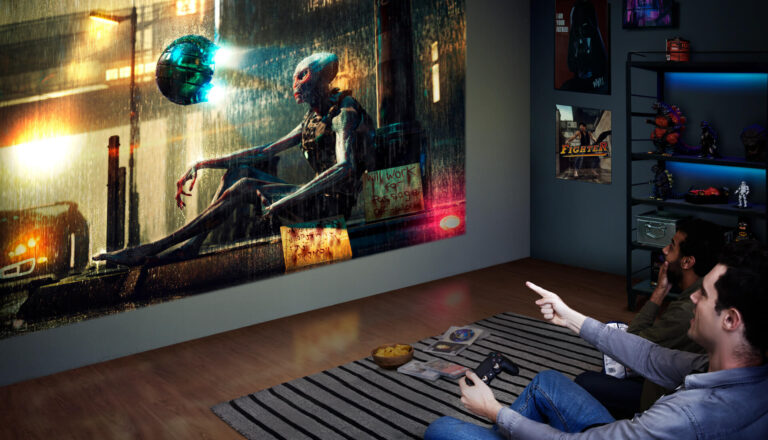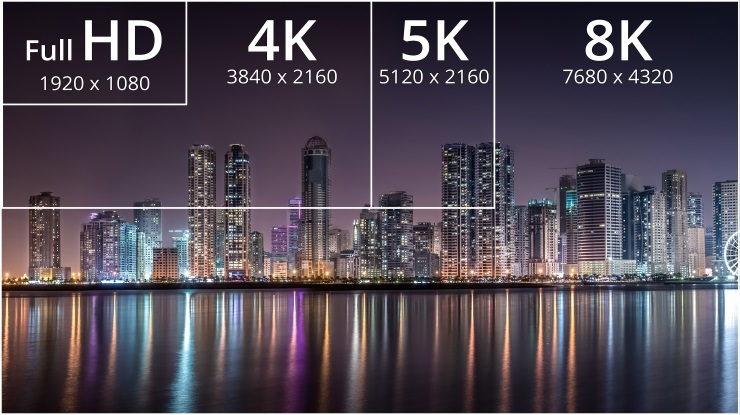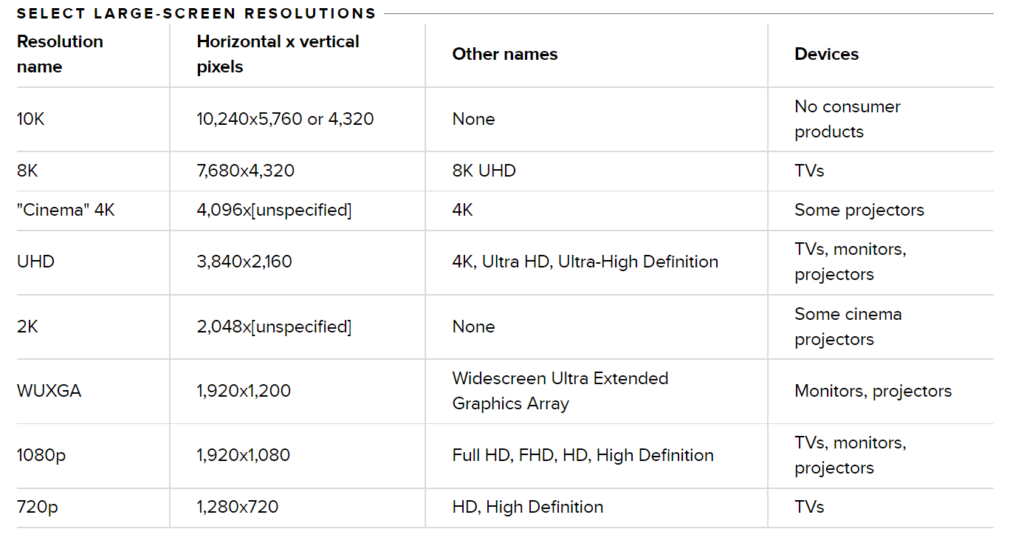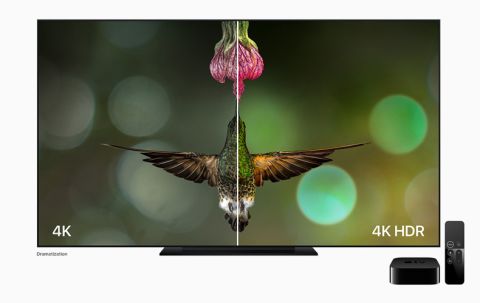
Everywhere you turn, screens are getting bigger, and resolutions are getting higher. But the jumble of alphanumeric soup can be pretty disorienting, especially for those who are looking to buy their very first TV. What is 8K? You may wonder, and how does it compare to 4K and UHD? What about 1080p Full HD? Is it the same as 4K?
In that case, you’ve come to the right place. In this article, we will cover the basics of screen resolution, pixel density, and how these numbers all fit together. Nothing too complex or intimidating, just enough to make you feel confident in your choice.
First of all: What is resolution?
Screens are comprised of tiny dots called pixels, which join together to form the images we see on TV every day. Resolution refers to the number of pixels a screen can display, measured by width and height. For example, a screen that has 1,024 pixels horizontally, and 768 vertically would have a resolution of 1,024 x 768.
More pixels lead to higher resolutions and sharper images.

What About these Acronyms?
SD =Standard Definition =640 x 480 = 480p
HD =High Definition =1280×720 =720p
Full HD =1920×1080 =1080p
QHD = Quad High Definition =2560×1440 =1440p =2K
UHD =Ultra High Definition =3840 x 2160=2160p =4K
8K = 7680 x 4320 =4320p

Do You Need 4K?
4K/ UHD/ Ultra HD is a huge display resolution found on premium TVs and computer monitors. 2160p is called 4K because the width is close to 4000 pixels. In other words, it offers four times the pixels of 1080p FHD or Full HD.
You’ll find 4K in most TVs nowadays – except some small TVs, which tend to cap out at Full HD resolution – and even in the majority of PC monitors, too.
The tech has become standardized to the point that you can be reasonably sure a 4K television you purchase now will be ready for the future, and it’s affordable enough to be compared directly with 1080p televisions in price.
With a fast enough internet connection, you can also stream 4K HDR video content from most major video streaming services, including Amazon, Google Play, iTunes, Netflix, and Vudu.
Isn’t 8K Coming Soon?
Actually, no. 8K resolution (7,680 by 4,320, four times the resolution of 4K) is already here for some high-end TVs, but it isn’t going to be a major factor for some time. There is no consumer content available in native 8K and there won’t be any for a while. If you spend the extra money on an 8K TV, you’ll be relying entirely on the TV’s upconversion process of 4K or lower resolution media, and that can’t be as good as native 8K content.
But keep in mind that more pixels don’t necessarily mean a better picture. There are other aspects of picture quality, such as contrast and color, that are equally important and must be taken into account.
What About HDR?
HDR stands for ‘High Dynamic Range’. The term originates in photography, and refers to a technique to heighten a picture’s dynamic range – the contrast levels between the brightest whites and the darkest blacks. HDR allows for much finer detail in the shades in between those light and dark colors.
Think of it this way: 4K determines the number of pixels in your video, while HDR determines how much light and color each pixel can display. Not all 4K content is HDR, but when it is, and your TV can handle it, it looks much better because of that wider reach of light and color.

Can You Watch High Resolution Videos on Lower Resolution Screens?
Regardless of what your screen resolution is, you can watch any video on it, no matter the video’s resolution (higher or lower). However, if the video you want to watch has a higher resolution than that of your display, your device converts the video’s resolution to one that fits the resolution of your display. This is called downsampling.
For example, if you want to watch a video with a 4K resolution on a 720p screen, that video is shown at 720p resolution, because that is all that your screen can offer.